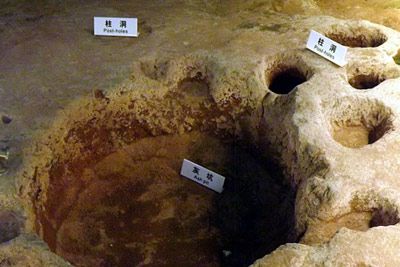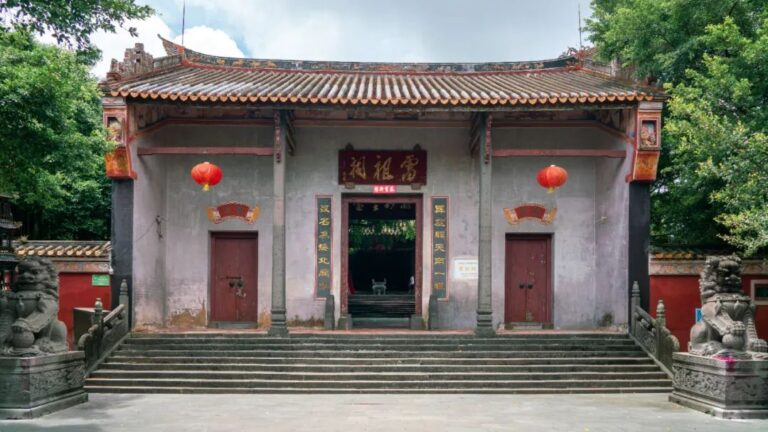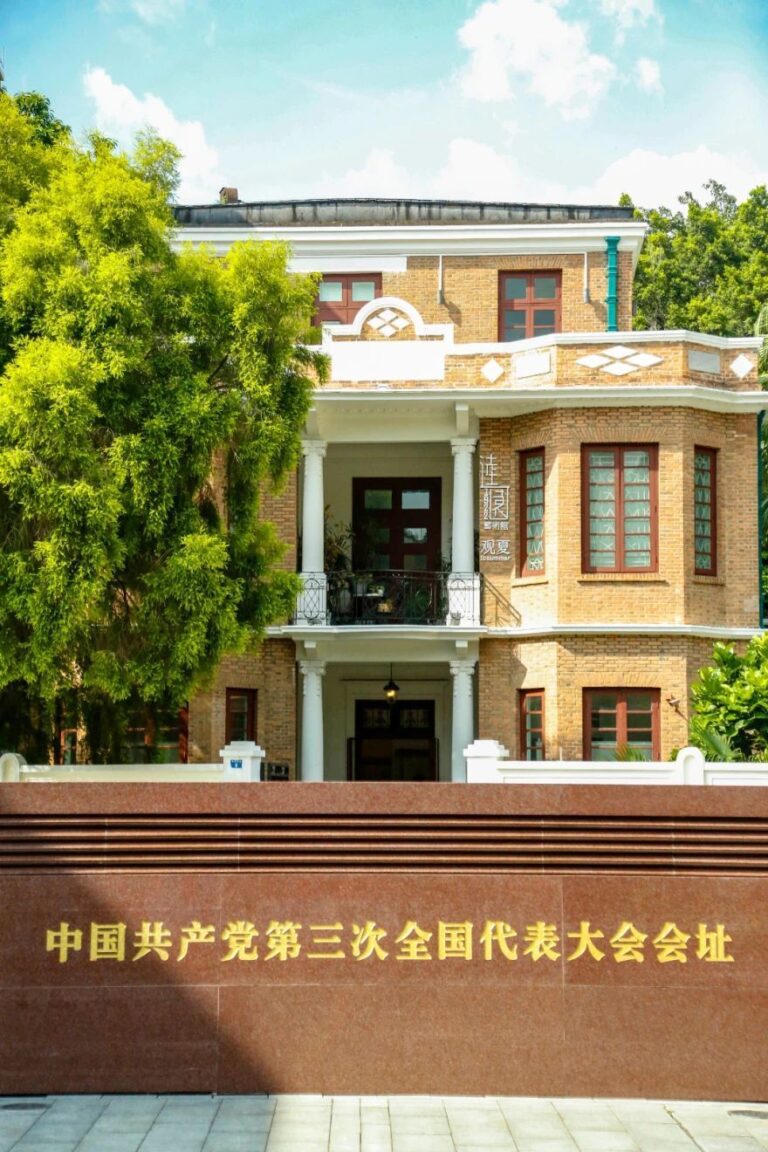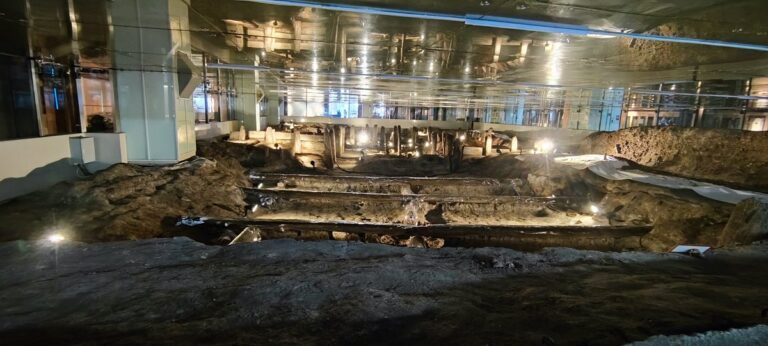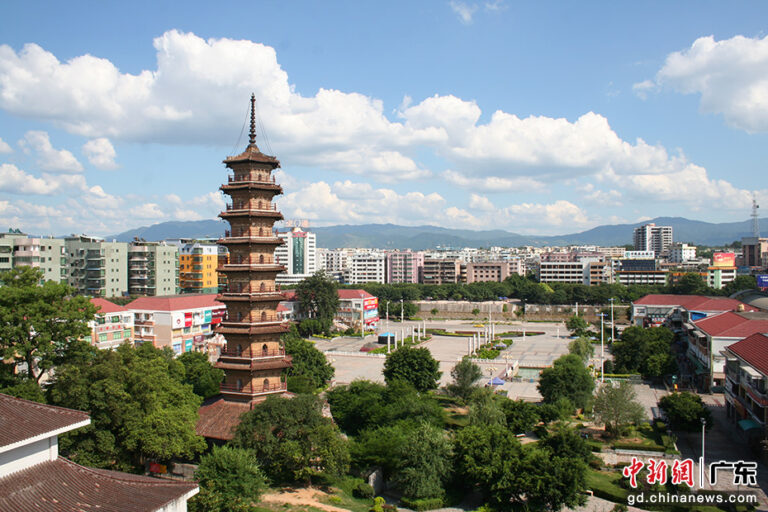Foshan Kangyouwei Guju: A Hidden Gem for Culinary Enthusiasts in Guangdong
An Essential Guide to Visiting Foshan Kangyouwei Guju
In This Guide
- An Essential Guide to Visiting Foshan Kangyouwei Guju
- The Rich History of Foshan Kangyouwei Guju
- Main Highlights: What to See at Foshan Kangyouwei Guju
- Planning Your Visit: A Practical Guide
- Tickets, Hours, and Booking
- How to Get There
- Local Cuisine and Accommodation
- Frequently Asked Questions
- Final Thoughts on Your Trip
Nestled in the heart of Foshan, the Kang Youwei Former Residence is a testament to China’s rich historical tapestry, embodying the spirit of reform and intellectual pursuit that characterized the late Qing Dynasty. This iconic site, also known as Yanshuang Ancient House, was built in 1858 and is the birthplace of Kang Youwei, a pivotal figure in modern Chinese history. Renowned as a scholar, politician, and reformist, Kang’s legacy is intricately woven into the fabric of the nation’s quest for modernity.
The residence itself is a striking example of traditional architecture from the Pearl River Delta, featuring a harmonious blend of gray brick walls and elegant wooden beams. Spanning over 20,000 square meters, the complex includes the Kang Youwei Memorial Hall, ancestral halls, and serene gardens, each narrating the story of a man whose revolutionary ideas sought to reshape China’s future. Visitors are invited to explore the very rooms where Kang immersed himself in literature and philosophy, laid the groundwork for his reformist ideologies, and penned influential works such as the initial draft of the “Book of Great Unity,” which still resonates today.
As a designated national cultural heritage site, Kang Youwei’s Former Residence not only serves as a window into the life of this remarkable individual but also offers insights into the broader historical movements that shaped contemporary China. With its profound cultural significance and well-preserved architecture, this site has become a must-visit destination for those wishing to delve into the complexities of China’s past and the enduring legacy of its reformers. Whether you are a history buff, an architecture enthusiast, or simply seeking to understand the roots of modern Chinese thought, the Kang Youwei Former Residence promises an enriching experience.
The Rich History of Foshan Kangyouwei Guju
Nestled in the heart of Foshan, Guangdong Province, the Kang Youwei Former Residence (康有为故居) is a significant historical site that offers a glimpse into the life of one of China’s most prominent reformers. Built in 1858, this residence is not only the birthplace of Kang Youwei but also a symbol of his intellectual journey and political aspirations.
Kang Youwei (1858-1927) was a pivotal figure in the late Qing Dynasty, known for his advocacy of modernization and reform during a time of national crisis. He emerged as a leading voice for the Hundred Days’ Reform in 1898, which aimed to transform China into a more progressive nation by adopting Western political and educational practices. Although the movement ultimately failed, leading to Kang’s exile, his ideas laid the groundwork for future reformists and significantly influenced Chinese intellectual thought.
The residence itself, also known as “Yuanxiang Ancient House” (延香古屋), exemplifies traditional architecture of the Pearl River Delta, featuring a layout of one hall, two rooms, and two corridors constructed from blue bricks and cypress wood. The house is well-preserved, showcasing the architectural style of the Qing Dynasty, with its spacious layout designed for ventilation and natural light—conditions that undoubtedly fostered Kang’s early intellectual pursuits.
Within these walls, Kang Youwei immersed himself in both Chinese and Western literature, developing his reformist ideology. It was here that he drafted the initial version of his renowned work, “Datong Shu” (大同书), which envisioned a utopian society based on equality and harmony. This manuscript remains influential, reflecting Kang’s deep commitment to national rejuvenation and reform.
In 1983, the local government undertook a restoration of the residence, preserving its historical integrity and opening it to the public as a key cultural heritage site. Today, the complex spans over 20,000 square meters and includes not only the residence but also the Kang Youwei Memorial Hall, ancestral halls, and lush gardens. The memorial hall features extensive exhibitions detailing Kang’s life, his scholarly contributions, and the socio-political context of his time. Visitors can explore the various rooms, including his study, where many of his thoughts found expression, as well as artifacts from his life and work.
Kang Youwei’s legacy as a reformer, educator, and thinker continues to resonate in modern China, making his former residence a vital destination for those interested in understanding the complexities of China’s transition into the modern age. This site not only honors Kang’s contributions but also serves as a reminder of the enduring quest for progress and enlightenment within Chinese society.
Main Highlights: What to See at Foshan Kangyouwei Guju
Foshan Kangyouwei Guju, also known as the Former Residence of Kang Youwei, is a culturally rich and historically significant site located in Foshan, Guangdong Province. This beautifully preserved complex, which covers over 20,000 square meters, showcases the life and legacy of one of China’s most prominent reformers. Here are the key highlights:
-
Historical Significance: The residence is dedicated to Kang Youwei, a pivotal figure in the late Qing Dynasty and a leader of the Reform Movement of 1898. Known for his efforts to modernize China, Kang Youwei’s birthplace serves as a testament to his lifelong dedication to national reform and intellectual advancement.
-
Architectural Marvel: Built in 1858, the residence, also referred to as “Yuanxiang Ancient House,” exemplifies traditional architecture from the Qing Dynasty. With its distinctive blue brick walls and ancient wooden structure, the building features a layout of a main hall flanked by two wings and corridors, creating a charming and comfortable environment that reflects the architectural style of the Pearl River Delta.
-
Kang Youwei Memorial Hall: This two-story exhibition hall offers a deep dive into Kang’s life, showcasing his scholarly pursuits from childhood through adulthood. Visitors can explore artifacts and documents that illustrate his journey from a diligent student to a passionate reformist who sought to save the nation from crises through modernization and reform policies.
-
Cultural Hub: The site comprises several key structures including the Kang Youwei Memorial Hall, the ancestral hall of the Kang family, and serene gardens. Each area provides insights into Kang’s family heritage and serves as an educational center for visitors interested in Chinese history and culture.
-
Artistic Contributions: Kang Youwei was not only a political figure but also an accomplished scholar and calligrapher. The residence houses several of his literary works and calligraphy, offering a glimpse into his artistic talents and intellectual contributions.
-
Visitor Experience: Open from Tuesday to Sunday, the site provides an engaging experience for tourists and locals alike. Entrance fees are minimal, making it accessible for anyone interested in exploring the rich historical tapestry of Foshan.
-
Surrounding Attractions: Located near other cultural landmarks, visitors to Kang Youwei Guju can easily combine their visit with nearby sites such as the Foshan Ancestral Temple or the Nanhai Wetland Park, making for a well-rounded exploration of the area’s heritage and natural beauty.
This historic residence not only honors Kang Youwei’s legacy but also serves as a vibrant cultural landmark that continues to inspire discussions on reform, tradition, and the evolution of Chinese society.
Planning Your Visit: A Practical Guide
Visiting Foshan’s Kang Youwei Former Residence offers a unique glimpse into the life of one of China’s prominent historical figures. Below is a practical guide to help you make the most of your visit.
Location and Access
Kang Youwei Former Residence is located at 12 Dunren Lane, Yinfeng Road, Nanhai District, Foshan, Guangdong Province. The site is easily accessible via public transportation. Bus routes 6, 15, 26, 304, 311, 312, and 316 will take you to the “Haisui Bathing Beach” stop, which is a short walk from the residence. For those who prefer to drive, be aware that parking can be challenging due to narrow roads and nearby constructions.
Opening Hours
The residence is open to visitors from Tuesday to Sunday, 9:00 AM to 5:00 PM, with the last admission at 4:00 PM. It is closed on Mondays, except during public holidays or special circumstances.
Admission Fees
- Off-Peak Season (November 1 – March 31): 5 CNY
- Peak Season (April 1 – October 31): 8 CNY
Key Attractions
The former residence covers an area of over 20,000 square meters and comprises several important buildings, including:
– Kang Youwei Memorial Museum: This museum is dedicated to the life and achievements of Kang Youwei, featuring exhibitions from his youth to his political endeavors.
– Yuanxiang Ancient House: Built in 1858, this well-preserved Qing Dynasty home showcases the architectural style of the Pearl River Delta with its characteristic brick and wood structure.
– Various Gardens and Pavilions: The residence includes tranquil gardens and pavilions, perfect for a leisurely stroll.
Suggested Duration of Visit
Plan to spend at least 1 hour exploring the site to fully appreciate the exhibits and the serene environment.
Nearby Attractions
While in the area, consider visiting:
– Danzao Library: A local library with a variety of resources.
– Kang Youwei Calligraphy Art Institute: For those interested in traditional Chinese calligraphy.
– Yunshan Park: A beautiful park ideal for relaxation and picnics.
Local Cuisine
Don’t miss trying some local delicacies near the residence:
– Cantonese Roast Suckling Pig
– Chaozhou Sausage
– Stuffed Peppers with Shrimp Paste
Tips for Visitors
- Arrive early to avoid the crowds, especially during peak tourist seasons.
- Bring a camera; the architecture and gardens provide great photo opportunities.
- Check local event calendars; sometimes, special exhibitions or cultural events are held at the residence.
Contact Information
For more information or inquiries, you may contact the residence at:
– Phone: +86-757-81001365 (for English ticket inquiries)
– Website: Visit official tourism sites for updates
This guide aims to ensure a smooth and enjoyable visit to Kang Youwei Former Residence, where history and culture come alive in the heart of Foshan.
Tickets, Hours, and Booking
When planning your visit to the Foshan Kangyouwei Guju (康有为故居), it’s essential to be informed about the ticketing details to ensure a smooth experience.
Ticket Prices
– Low Season (November 1 to March 31): 5 RMB
– High Season (April 1 to October 31): 8 RMB
Opening Hours
The site operates from Tuesday to Sunday, with visiting hours from 9:00 AM to 5:00 PM. Please note that the last entry is at 4:00 PM. The museum is closed on Mondays, as well as during public holidays and special circumstances.
Location
Foshan Kangyouwei Guju is located at 12 Dunrenli, Yinfeng Road, Nanhai District, Foshan, Guangdong Province.
Transportation
To reach the site, visitors can take several bus routes, including routes 6, 15, 26, 304, 311, 312, and 316, and disembark at the “Haisui Bathing Beach” stop. Alternatively, buses 214, 220, and 228 can drop you off at the Xiaoyushan station. Due to the mountainous terrain and narrow roads surrounding the area, parking may be limited, so public transport is recommended for convenience.
Visitor Experience
Plan to spend about one hour exploring the site, which includes the main residence, the Kang Youwei Memorial Hall, and several other historical buildings within the complex. The rich cultural heritage and significance of Kang Youwei’s life and work make this a worthwhile stop for history enthusiasts and anyone interested in Chinese political reform.
For any inquiries regarding ticket bookings or additional information, you can contact the site at the following numbers:
– +86-757-81001365 (English ticketing inquiries)
– +86-757-81001366
Whether you’re a local or a traveler from afar, a visit to the Kangyouwei Guju offers a glimpse into the life of one of China’s pivotal reformers and the historical context of his time.
How to Get There
Getting to Foshan Kangyouwei Guju (康有为故居) can be a straightforward experience, thanks to the city’s well-connected transportation network. Here’s a comprehensive guide to help you navigate your way to this historical site.
By Public Transport
Buses
Foshan is served by an efficient bus system, making it convenient to reach Kangyouwei Guju. The following bus routes will get you close to the site:
- Routes: 6, 15, 26, 304, 311, 312, 316
- Stop: Get off at the “Haisui Bathing Beach” stop for easy access to the site.
- Alternative Routes: You can also take buses 214, 220, and 228 to the “Xiaoyushan” stop, which is nearby.
These buses operate frequently, and most have clear signage in both Chinese and English, making it easier for international visitors to navigate.
Metro
While there isn’t a direct metro line to Kangyouwei Guju, you can take the metro to a nearby station and then switch to a bus or take a taxi. The nearest metro stations are located in central Foshan, from where you can easily connect to the aforementioned bus lines.
By Taxi or Ride-Hailing Services
For a more direct route, consider taking a taxi or using ride-hailing apps such as Didi Chuxing. This option is particularly convenient if you’re traveling in a group or prefer a more personalized journey. Taxis and ride-hailing vehicles are readily available throughout Foshan and can take you directly to the address:
Address: 12 Dunrenli, Yin Feng Road, Nanhai District, Foshan, Guangdong.
By Car
If you’re driving, navigation apps like Baidu Maps or Google Maps can guide you to the site. However, be mindful that parking can be limited in the area due to narrow roads and surrounding residential buildings.
Nearby Attractions
Once you arrive at Kangyouwei Guju, you may want to explore the surrounding areas. Nearby attractions include:
- Kang Youwei Memorial Museum: Located adjacent to the residence, this museum offers insights into the life and works of Kang Youwei.
- Danzao Town Library: A cultural spot perfect for a quiet visit.
- Yunshan Park: Ideal for a leisurely stroll after your historical exploration.
Final Tips
- Opening Hours: The site is open from Tuesday to Sunday, 09:00 to 17:00 (last entry at 16:00). It’s closed on Mondays, so plan your visit accordingly.
- Entry Fee: Expect a modest entrance fee—5 RMB during the off-peak season (November to March) and 8 RMB during the peak season (April to October).
With these transportation options and tips, your visit to Foshan Kangyouwei Guju will be smooth and enjoyable. Whether you prefer the convenience of a taxi or the local experience of public transport, you’ll be well-equipped to explore this significant cultural landmark.
Local Cuisine and Accommodation
Food & Accommodation Near Foshan Kangyouwei Guju
When visiting the historic site of Foshan Kangyouwei Guju (Kang Youwei’s Former Residence), you’ll find yourself in an area rich in both culture and cuisine. Here are some top recommendations for food and accommodation nearby to enhance your experience.
Dining Options
- Shunde Cuisine at Xiangyun Restaurant
- Location: Shunde District, approximately 41.2 km from the residence.
-
Highlights: Known for its authentic Shunde cuisine, this restaurant offers a delightful culinary experience. Don’t miss their signature dishes like steamed fish and double-skin milk pudding.
-
Cai Yue Xuan at Sheraton Guangzhou Hotel
- Location: Tianhe District, about 44.5 km away.
- Cuisine: Cantonese
-
Highlights: This upscale restaurant is well-regarded for its exquisite dim sum and fresh seafood. The ambiance is elegant, making it perfect for a special meal after a day of sightseeing.
-
Local Street Food Stalls
- Location: Near the Kang Youwei residence.
-
Highlights: For a more casual dining experience, explore the street food vendors offering local specialties like roasted suckling pig, Guangdong sausages, and snake soup. These dishes provide a taste of the region’s culinary heritage.
-
Bai Jia Restaurant
- Location: Just a short drive from the residence.
- Cuisine: Cantonese
- Highlights: This restaurant offers a cozy atmosphere and a wide variety of traditional dishes. Their mooncakes and congee are particularly popular among locals.
Accommodation
- Foshan Meidong Hotel
- Type: Budget-friendly hotel
- Location: Central Foshan, around 20 km from the residence.
-
Highlights: This hotel offers comfortable rooms at an affordable price, making it a great base for exploring the area.
-
Foshan Shunde Xiangyun Garden Hotel
- Type: Mid-range hotel
- Location: Shunde District, close to local attractions.
-
Highlights: Featuring modern amenities and a beautiful garden, this hotel provides a serene environment. The on-site restaurant serves delicious local cuisine.
-
Crowne Plaza Foshan
- Type: Luxury hotel
- Location: Approximately 30 km from the residence.
-
Highlights: This upscale hotel offers spacious rooms, a fitness center, and several dining options. It’s ideal for travelers looking for a touch of luxury during their stay.
-
Airbnb Options
- Type: Various private accommodations
- Location: Available in neighborhoods surrounding the Kang Youwei residence.
- Highlights: For a more personalized experience, consider renting a local apartment or guesthouse through platforms like Airbnb. This option allows you to immerse yourself in the local culture.
Exploring the area around Foshan Kangyouwei Guju not only provides a glimpse into history but also offers a variety of dining and lodging options to make your visit comfortable and enjoyable. Whether you prefer traditional cuisine or modern accommodations, there’s something to suit every taste and budget.
Frequently Asked Questions
-
What is the opening hours for Foshan Kangyouwei Guju?
Foshan Kangyouwei Guju is open from Tuesday to Sunday, from 9:00 AM to 5:00 PM. Last entry is at 4:00 PM. The site is closed on Mondays, except during public holidays or special occasions. -
Where is the Foshan Kangyouwei Guju located?
The historic residence is situated at No. 12 Dunrenli, Yinfeng Road, Nanhai District, Foshan, Guangdong Province, China. -
How much is the entrance fee?
Admission costs 5 RMB during the off-peak season (November 1 to March 31) and 8 RMB during the peak season (April 1 to October 31). -
Can I take photographs inside the residence?
Photography is generally allowed inside the museum and residence; however, it’s advisable to check for any specific restrictions upon arrival. -
What are the main attractions within the Foshan Kangyouwei Guju?
The site includes several key attractions such as the Kang Youwei Memorial Hall, the main residence (known as Yanxiang Ancient House), the Kang Clan Ancestral Hall, and various scenic areas including the lotus pond and pavilions. -
How much time should I allocate for my visit?
A visit typically lasts about one hour, allowing you to explore the key exhibits and appreciate the historical significance of the site. -
Is there public transportation available to reach the site?
Yes, public buses such as routes 6, 15, 26, 304, 311, 312, 316 can take you near the site. The nearest stop is “Haisui Bathing Beach.” Be mindful that parking can be limited in the area. -
Are there any nearby attractions worth visiting?
Yes, nearby attractions include the Nanzhao Library, the Kang Youwei Calligraphy Art Institute, and Yunshan Park, making it easy to plan a full day of exploration in the area.
Final Thoughts on Your Trip
Visiting the Foshan Kangyouwei Guju is more than just a journey to a historical site; it is a step back in time to explore the life and legacy of one of China’s most influential reformers. As you wander through the well-preserved halls of this ancestral home, you will be enveloped in the rich cultural tapestry that shaped the ideals of Kang Youwei and his vision for a modern China. The tranquil surroundings, featuring traditional architecture and lush gardens, serve as a poignant reminder of the resilience and determination that characterized Kang’s pursuit of truth and justice.
Whether you are a history buff, a student of philosophy, or simply a curious traveler, the insights gained here will resonate long after your visit. The exhibits offer a deep dive into the tumultuous era of reform, highlighting not just Kang’s achievements but also the struggles he faced in advocating for change. This site stands as a testament to the enduring spirit of innovation and the quest for enlightenment, encouraging visitors to reflect on the past as they contemplate the future.
As you leave, carry with you the inspiration drawn from Kang Youwei’s journey, and consider how the lessons of history can inform your own path. The Foshan Kangyouwei Guju is not just a relic of the past; it is a beacon of hope for those who dare to dream of a better world.
